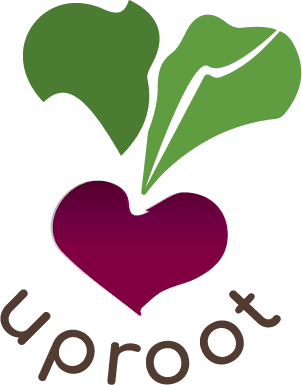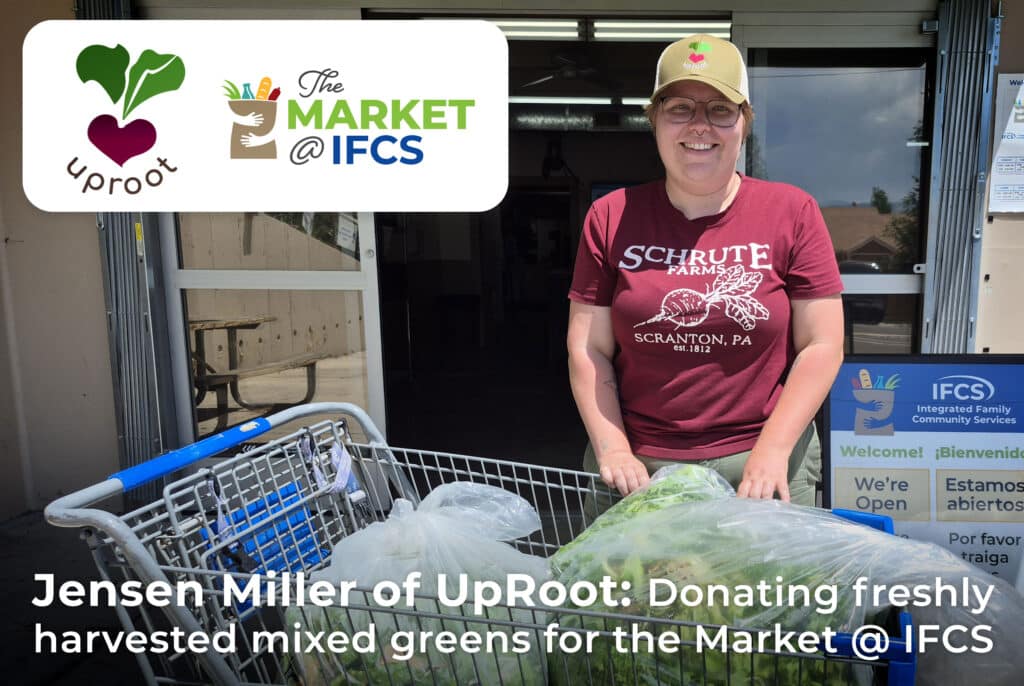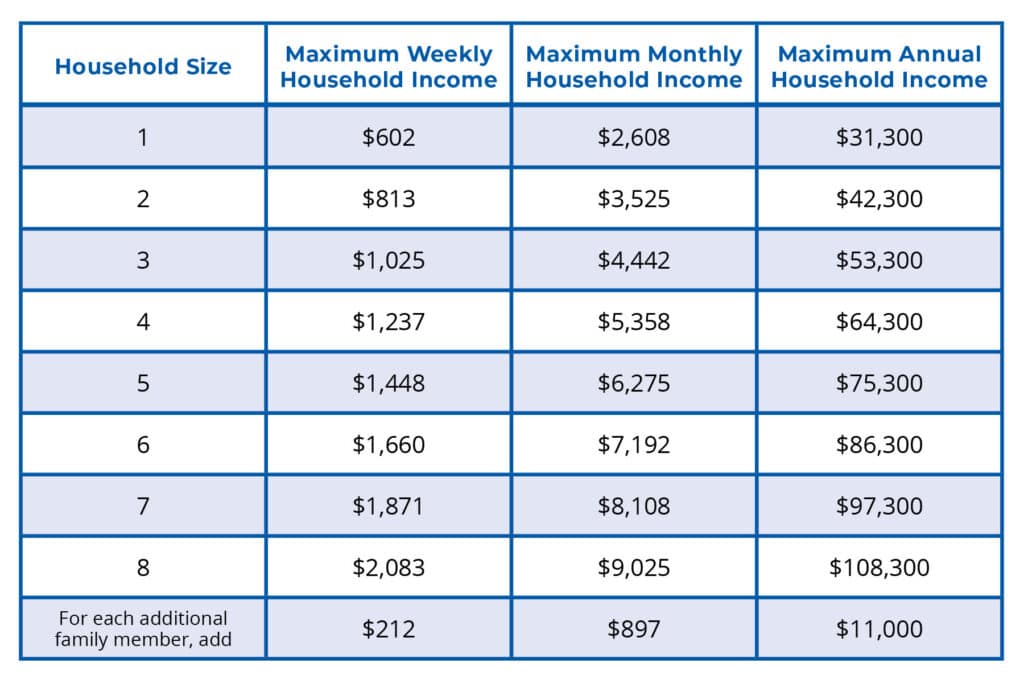 Feeding America defines food waste as “perfectly good, safe-to-eat food that gets thrown away instead of eaten.” This includes ugly or oddly shaped produce, foods with upcoming sell-by or expiration dates (that are still safe to eat), overproduction at farms, and damage during transport. It’s reported that 98 billion pounds of food is wasted annually, which could equal 145 billion meals. Meanwhile, millions nationwide, including 1 in 8 Coloradans, struggle to access nutritious foods.
Feeding America defines food waste as “perfectly good, safe-to-eat food that gets thrown away instead of eaten.” This includes ugly or oddly shaped produce, foods with upcoming sell-by or expiration dates (that are still safe to eat), overproduction at farms, and damage during transport. It’s reported that 98 billion pounds of food is wasted annually, which could equal 145 billion meals. Meanwhile, millions nationwide, including 1 in 8 Coloradans, struggle to access nutritious foods.
UpRoot Colorado, a non-profit, aims to address food waste through gleaning, which involves collecting excess food from farms, gardens, and fruit tree stewards (those with fruit trees in their backyard), and then distributing it to hunger relief partners, including IFCS. UpRoot Colorado is the only state-wide gleaning effort, with organizers everywhere from the western slope to Metro Denver to Mesa County and more.

IFCS recently connected with Jensen Miller (who uses they/he pronouns), the Gleaning & Food-Systems Coordinator for Metro Denver. Jensen initially reached out to IFCS to rekindle a relationship after seeing donation records from a couple years prior.
Throughout the harvest season, IFCS accepts locally grown garden and farm produce. While UpRoot is our newest connection, IFCS has a long history of providing families with locally grown produce from places like Hudson Gardens and local farmers.
Inspired by the 2016 Feeding the 5000 event in Boulder, UpRoot founders began operations in 2017, researching and piloting their proposed model. The organization officially became a 501(c)(3) non-profit in 2020. With less than a decade in operation, the organization has had a tremendous impact. As of April 2025, UpRoot Colorado had 89 farm partners, 79 hunger relief partners, and 275 volunteers statewide. The organization is continuously growing, with new regions popping up regularly.

According to the organization’s website, “Volunteer Gleaning Corps and staff have harvested more than 5 million servings of nutrient-dense surplus produce, moving these locally grown surplus protective foods into area hunger-relief agencies for community-wide distribution, as well as directly to early childhood learning centers and neighborhood sites”
As of summer 2025, seven UpRoot regions were active, with each region’s coordinator overseeing all organizational aspects in their area. As the Metro Denver Coordinator, Jensen oversees farmer partnership, hunger relief organization partnership, volunteer recruitment and management, and most importantly, ensuring produce makes its way from the farmer to a nearby nonprofit immediately after harvesting.
“Nutrient-dense food is in very very high demand,” Jensen said. “I myself have been food insecure in Denver, and produce that is good quality, or any nutrient-dense food is so difficult to find. Food waste is a big problem in the US. We’re coming in and harvesting food that would otherwise honestly go to waste.”
According to Jensen, there’s a variety of reasons a crop becomes surplus, putting it at risk of becoming wasted. This includes planted crops being lower demand, hail damage, and food not being aesthetically pleasing. A recent contributor includes contracts the USDA backed out of, leaving farmers both short-staffed and with fewer places to distribute crops.

“Sometimes the surplus is not because they weren’t able to harvest it, but they harvested it and it just doesn’t have a place to go,” Jensen said.
In addition to gleaning, UpRoot promotes farmer resilience, including but not limited to providing tax donation receipts, sharing mental health resources, as well as connecting them to additional places they could sell produce (such as farmers markets).
For the hunger relief partner, Jensen is working to create recipe cards for less-familiar produce like kohlrabi and arugula, where he centers cultural relevancy and offers possible ingredient substitutions. They also hope to bring produce to taste-test in Market-style distributions like IFCS in the future, as well as discussing the food’s origins with customers—something already done in other UpRoot regions.
“It’s very rewarding to do something that has direct impact,” Jensen said. “To be connected to something that is very locally rooted and has that visible, direct impact is huge and motivating.”

If you’re interested in getting involved with UpRoot, whether as a farmer, fruit tree steward, hunger relief organization, or volunteer, visit their website: uprootcolorado.org
If you’re interested in donating produce to IFCS this summer, we accept donations during food market distribution hours. Donations go the furthest when they are directly accepted by volunteers and staff, and not left outside in the summer heat.
We also invite donors to download the Fresh Connect app in the app store, to schedule a donation. Scheduling online is not required to donate.
Click here to learn various ways to donate food in support of IFCS.



